International
Europe and Canada close ranks to count on Ukraine in the peace negotiation
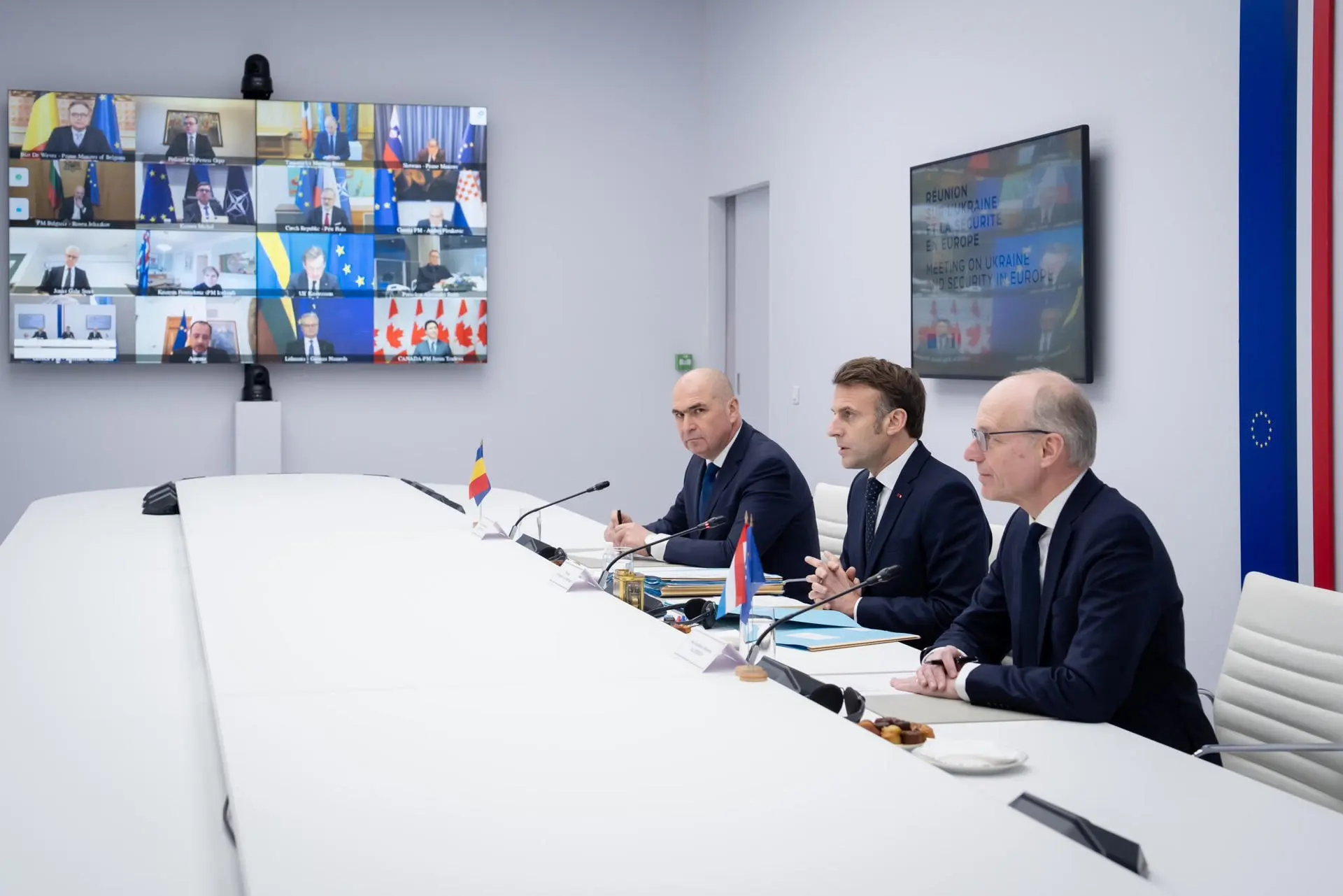
Europe and Canada closed ranks this Wednesday to count on Ukraine and the Europeans in peace negotiations, in an informal summit held from Paris while Ukrainian President Volodymyr Zelensky and US President Donald Trump were accused.
“The position of France and its partners is clear and united. We want a lasting and solid peace in Ukraine,” Macron summarized on the social network X after the meeting.
To do this, he indicated three conditions, starting with the maxim that Kiev is counted on in the negotiations and that its rights are respected.
Secondly, he mentioned that peace must be accompanied by “strong and credible guarantees” and finally stressed that “the security concerns of Europeans must be taken into account”.
Other leaders spoke in the same vein after the debate, which was the second informal summit of this type organized by the Elysée.
Last Monday, another one took place that urgently met in Paris with eight of the main powers of the Old Continent (France, Germany, the United Kingdom, Denmark, Poland, Spain, Italy and the Netherlands), in addition to NATO leaders and the institutions of the European Union.
On this occasion, given that the reduced format of that first meeting aroused discomfort among some of the absent countries, Macron had the participation in person of the President of Romania and the Prime Minister of Luxembourg and, by videoconference, of the heads of State or Government of 18 other countries.
The guest list included, among others, Belgian Prime Minister Bart De Wever and Portuguese Prime Minister Luís Montenegro. Also to heads of government of European countries that are members of NATO but not of the EU, such as Norway, Jonas Gahr Støre, or Iceland, Kristrún Frostadóttir.
Outside the region, only Canada was listed, which is the only non-European partner of NATO in addition to the United States.
“It is a fundamental principle of Canada and the vast majority of allies: nothing about Ukraine without Ukraine,” emphasized the Prime Minister of that country, Justin Trudeau, at a press conference after participating in the Paris debate.
The message of support for Kiev and vindication of the siege of Europe in the negotiations was clear in the face of the marginalization suffered in the first contacts between Washington and Moscow, held in Saudi Arabia.
“A peace solution will not be lasting without Ukraine participating in the negotiations. And Europe must have a place at the table,” Norwegian Prime Minister Jonas Gahr Støre said in post-press statements.
In the same vein, Finnish President Alexander Stubb spoke in his opinion, calling for a “common European line” so that the old continent can sit in the negotiations.
“Otherwise, there is a risk that the United States and Russia will negotiate above Europe and Ukraine,” Stubb emphasized, in addition to asking to keep a “cool head.”
For his part, the Swedish Prime Minister, Ulf Kristersson, warned that Europe is at a “crossroads” and that the end of this war will define security on the continent “for future generations”.
“We must arm Ukraine,” he said, “so that it can have a position of strength with which to negotiate peace and thus bring peace to our part of the world. That is why we are going to continue with broad support for Ukraine.”
While the Paris meeting was taking place, tensions between Zelenski and Trump rose a lot in decibels, to the point that the US president accused his Ukrainian counterpart of being a “dictator”, after he said that the White House tenant lives in a cloud of disinformation for having blamed Kiev for starting the war.
Faced with the upsurge of tone, Macron – who has been acting as a diplomatic conductor to try to speed up a debate that would be more complex and slow in other formats – said in his message that Europe shares the objective of ending the conflict, but emphasized that it is a “war of aggression carried out by Russia.”
He also expressed the conviction that Europe must increase “its spending and defense and security capabilities”, something demanded by Washington, and promised that “decisions will be made in the coming days and weeks.”
It will be specifically in March when the European Union defines that increase, detailed the Latvian Prime Minister, Evika Silina, who was another of the participants of the Paris meeting.
It will be done in “close cooperation with NATO,” Silina said, and will also be accompanied by an increase in military aid to Ukraine.
In parallel to the end of the meeting, it was announced that Macron will travel to Washington next week, through the mouth of the White House National Security Advisor, Mike Waltz, although the Elysée has not confirmed the details.
For his part, British Prime Minister Keir Starmer held a conversation on Wednesday with the President of Ukraine, Volodymyr Zelensky, whom he defended as a “democratically elected leader” hours after Donald Trump described him as a “dictator without elections”.
This was confirmed by Downing Street (the official residence and office of the British Prime Minister) in a statement, in which he indicated that the Labor leader expressed his support for the Ukrainian president during the call and told him that it was “perfectly reasonable to suspend elections in times of war, as the United Kingdom did in World War II.”
Starmer also insisted to Zelenski on the need to work together and supported the “efforts led by the United States to achieve a lasting peace in Ukraine that deters Russia from any future aggression.”
International
Colombia: Search continues for missing limb of italian scientist found dismembered
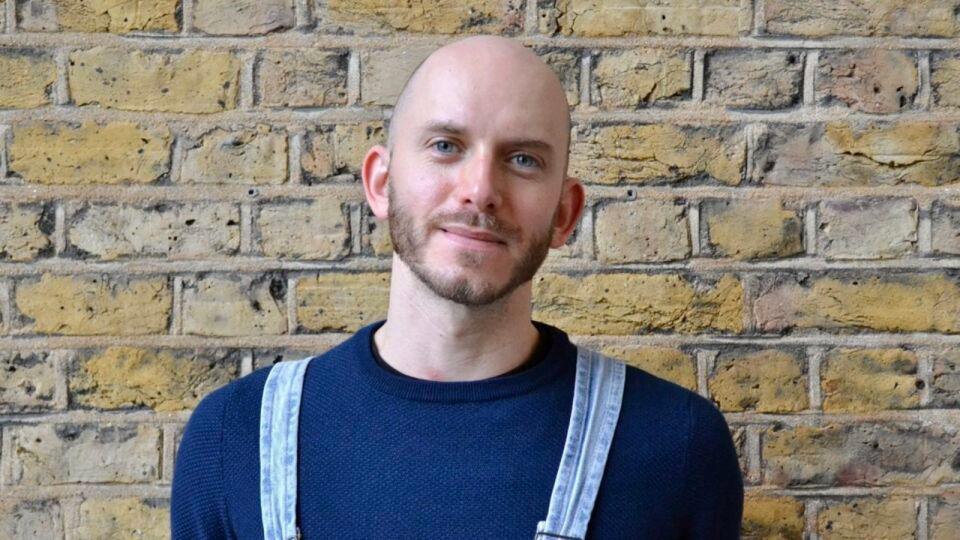
Rescue teams and Colombian authorities continued their search on Tuesday for the missing left leg of Italian biologist Alessandro Coatti, whose dismembered body was found in the Caribbean city of Santa Marta.
Coatti, 42, was a molecular biologist who had been traveling through South America after working for eight years at the Royal Society of Biology (RSB) in London.
He had been staying in a hotel in Santa Marta since April 3 and was later reported missing. His dismembered body began to be discovered on April 6, when parts were found inside a suitcase abandoned near a football stadium in an area known as Bureche.
“We’re conducting the search along the riverbanks and in the water to identify possible spots where, due to the river’s current, the missing left leg might be located,” Karlotz Omaña García, director of the Magdalena Civil Defense, told The Associated Press. Despite covering a 500-meter radius, the limb was not found.
Authorities have not named any suspects or shared possible motives. A reward of more than $11,000 has been offered for information leading to those responsible for the foreign scientist’s murder.
Police continue to reconstruct Coatti’s final movements. According to Colonel Jaime Ríos, head of the Santa Marta Metropolitan Police, the Italian biologist arrived in Colombia in January and had visited several locations, including Medellín, before traveling to Santa Marta.
Security footage shows Coatti was in downtown Santa Marta the night before his body was found, the colonel added.
Santa Marta, a popular Caribbean tourist destination, is known for its clear beaches. Police believe Coatti may also have visited Tayrona Park, a protected coastal area located about 34 kilometers (21 miles) from the city center.
International
MPV Denounces Electoral Blockade as Secretary-General is Disqualified for May Elections
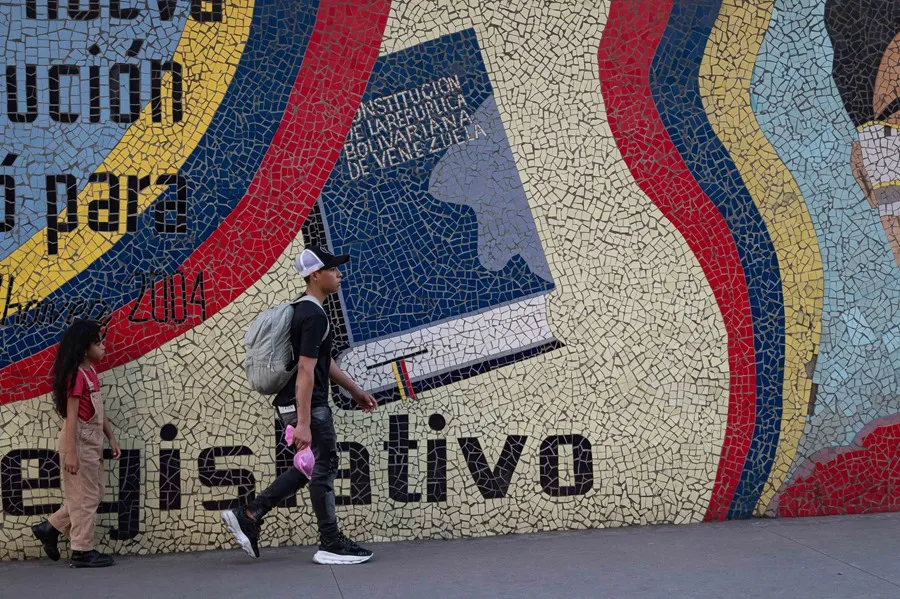
The anti-Chavista party Movement for Venezuela (MPV) denounced on Monday that it was “prevented” from submitting its candidates for the regional and legislative elections on May 25, elections rejected by opposition leaders Edmundo González Urrutia and María Corina Machado.
“MPV, being an active and recognized party in the National Electoral Council (CNE), was prevented from submitting candidates for the current electoral process,” stated the political group through a communiqué on X.
Additionally, the group denounced that its Secretary-General, Simón Calzadilla, was “suddenly disqualified,” as the opposition leader warned last Friday. He also explained that he attempted to access the CNE’s automated candidate submission system but, as he added, the portal showed that he was not authorized to create a user and submit the MPV candidates.
For the party, its “strong decision” to participate in the May elections “highlighted the true nature of this electoral process,” which it described as “extremely flawed.”
International
Maduro Plans Major Workers’ March on May 1st to Defend Venezuela’s Freedom
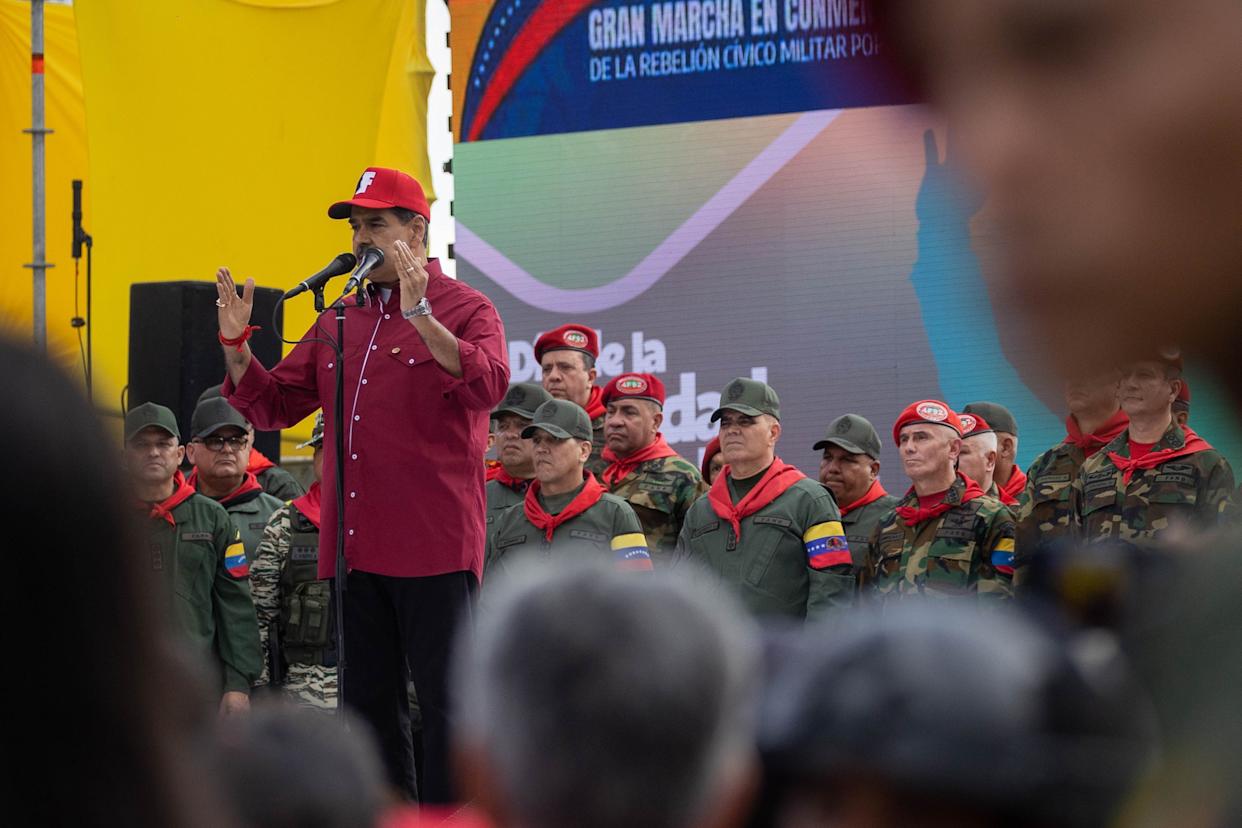
Nicolás Maduro, who swore in for a third term in January following his controversial re-election, called on Monday for the “working class” and the “armed people” to gather for a concentration on May 1st for peace, as part of the celebration of International Workers’ Day.
“Let’s have a powerful march of the working class, the combat bodies, and the Bolivarian National Militia in all the cities of the country, from end to end, working class and armed people in the streets shouting for peace,” said the chavista leader in a broadcast on the state channel Venezolana de Televisión (VTV), surrounded by military authorities.
He also stated that Venezuela is more armed than “ever” to “defend the sacred dream of a free homeland, the sacred soil of a heroic land, Venezuela.”
Maduro called on all military personnel to “stay in shape” with a “deployment capacity” and also to have “a very clear view of the entire national territory.”
-
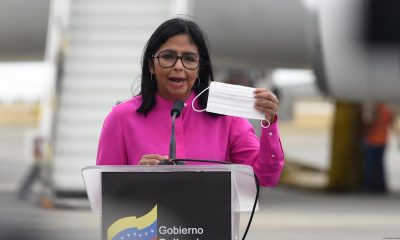
 International3 days ago
International3 days agoVenezuela accuses Guyana of “warlike intentions” after UK defense deal
-

 Central America4 days ago
Central America4 days agoSpanish Ex-Congresswoman Calls for ‘Bukele-Style’ Security Policies in Europe
-
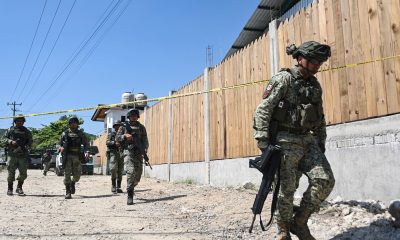
 International4 days ago
International4 days agoTrump Authorizes Military to Take Control of Federal Land Along U.S.-Mexico Border
-

 International3 days ago
International3 days agoNightclub Collapse in Dominican Republic Claims 226 Lives
-

 Central America2 days ago
Central America2 days agoHonduran Police Offer $135K for Tips Leading to the Arrest of Romeo Vásquez
-

 International2 days ago
International2 days agoMaduro Plans Major Workers’ March on May 1st to Defend Venezuela’s Freedom
-

 Central America18 hours ago
Central America18 hours agoPetro questions Ecuador’s vote, cites reports of military control and arrests
-

 International2 days ago
International2 days agoMPV Denounces Electoral Blockade as Secretary-General is Disqualified for May Elections
-

 International18 hours ago
International18 hours agoColombia: Search continues for missing limb of italian scientist found dismembered















